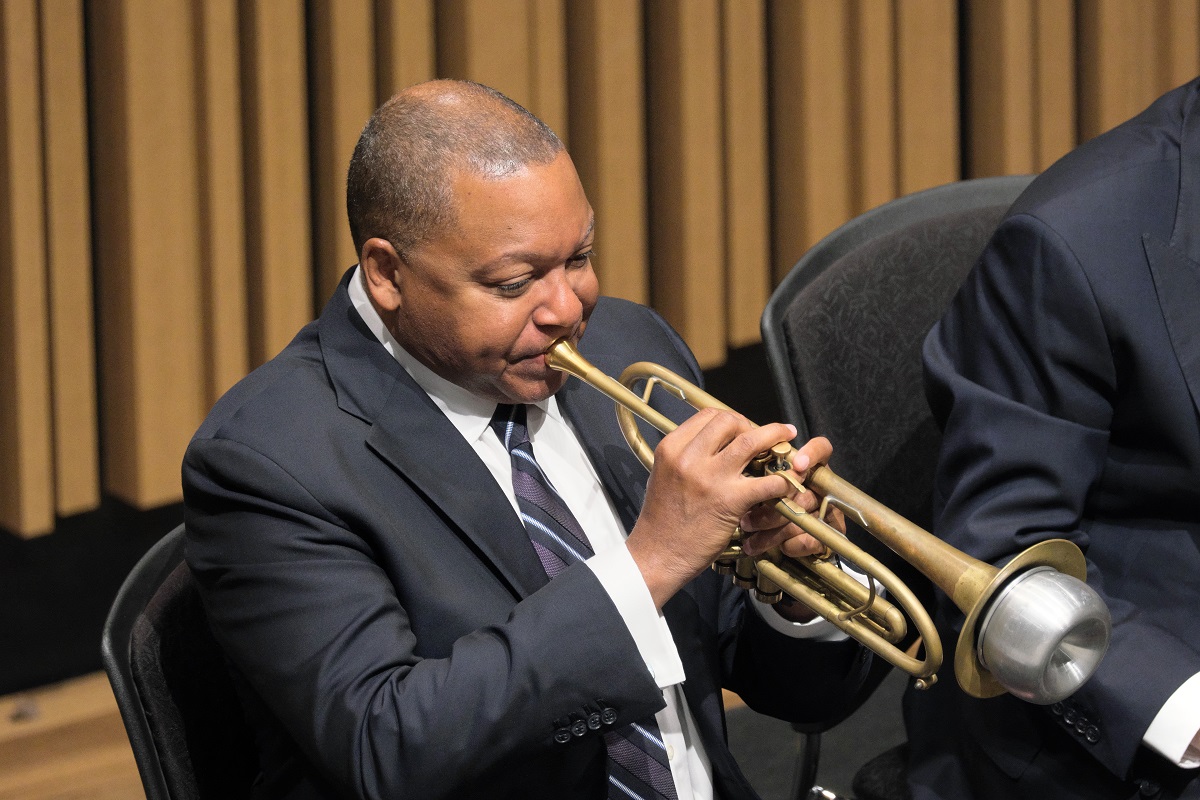
Music / Jazz at Lincoln Center Orchestra with Wynton Marsalis. At Snow Concert Hall, August 17. Reviewed by ROB KENNEDY.
CONCERT halls the world over have been transformed into jazz clubs when Wynton Marsalis and the Lincoln Center Orchestra hit town. This was Canberra’s turn.
Coming from one of the most artistic American families, known as the “Doctor of Swing”, Wynton Marsalis performed his first concert at just 14 when he made his debut with the New Orleans Philharmonic in 1975. He has not stopped performing since.
The players were, Marsalis, music director and trumpet, Marcus Printup, Ryan Kisor, Kenny Rampton, trumpet; Vincent Gardner, Chris Crenshaw, Elliot Mason, trombone; Dan Nimmer, piano; Sherman Irby, Ted Nash, Victor Goines, Nicole Glover, Paul Nedzela, saxophones; Carlos Henriquez, bass, and Obed Calvaire, drums.
New Orleans jazz, symphonic modernism, ragtime, blues, folk song, Latin dance music and more, this concert had it all.
Opening with Dizzy Gillespie’s “Grand Central, that big band sound is the most special experience. Fifteen players loud and strong, swinging, fast, upbeat, many playing a solo, with Marsalis coming in on muted trumpet.
Marsalis makes his instrument talk, growl and moan. And he relates to an audience in such a relaxed manner as he talked about the composers he’s worked with, such as Gillespie.
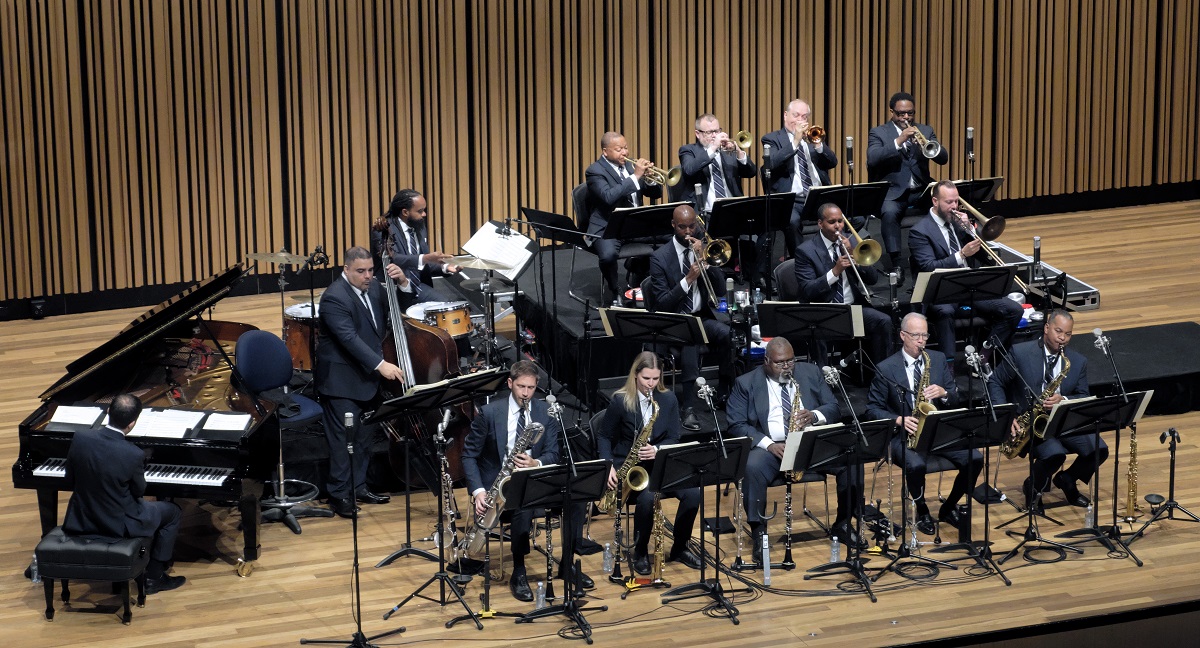
A piece by Wayne Shorter soon followed, titled “Three Marias”. In a Latin groove, cool and smooth, the sound beautifully held back by every player, but with a dynamic fill from soprano sax; what a brilliant composition.
A Thelonious Monk composition called “Light Blue”, transcribed by a member of the band, followed. It had that individual sound Monk was known for. What sounded like out-of-place notes on a piccolo, then a solo break for a jumpy and quirky piano line coming before that playful music hit again. Yes, it was light blue, whatever that is in music.
Finishing the first half with a Dave Brubeck tune, “Blue Rondo à la Turk”, yes, that famous work, with an extensive sax solo, arranged by a band member, it had everyone in the zone.
After the interval, with the drummer on brushes, a Kenny Dorham piece set a reflective mood. It soon picked up the beat into a smooth New York-styled jazz piece. So cool. Amidst scorching sax and trumpet solos, it turned into a frenzied performance.
Then Duke Ellington, one of his moody orchestrally infused works. With solo trombone as lead, out front, it hit that sound from years gone by, and it was, oh so, smooth. A Charles Mingus work followed, “Song with Orange”. But it was deep blues, then a bit of everything. With everyone improvising, it became the longest and most exciting work of the night; the solos were to die for.
What makes this band/orchestra is the strength and originality of each player. Everyone with a rich unique voice, but when they come together, wow, can they rock.
Concluding the night with another Monk tune, “We See”. That big band sound filled the hall with a jumping song full of solos and deep bass grooves. All from a bunch of happy players with an even happier audience standing and cheering to share their love.
Who can be trusted?
In a world of spin and confusion, there’s never been a more important time to support independent journalism in Canberra.
If you trust our work online and want to enforce the power of independent voices, I invite you to make a small contribution.
Every dollar of support is invested back into our journalism to help keep citynews.com.au strong and free.
Thank you,
Ian Meikle, editor

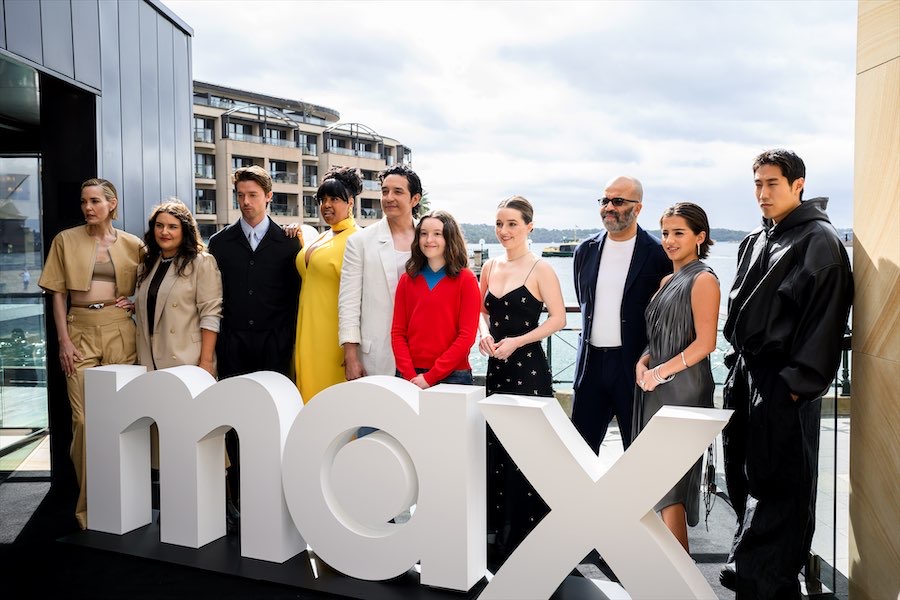
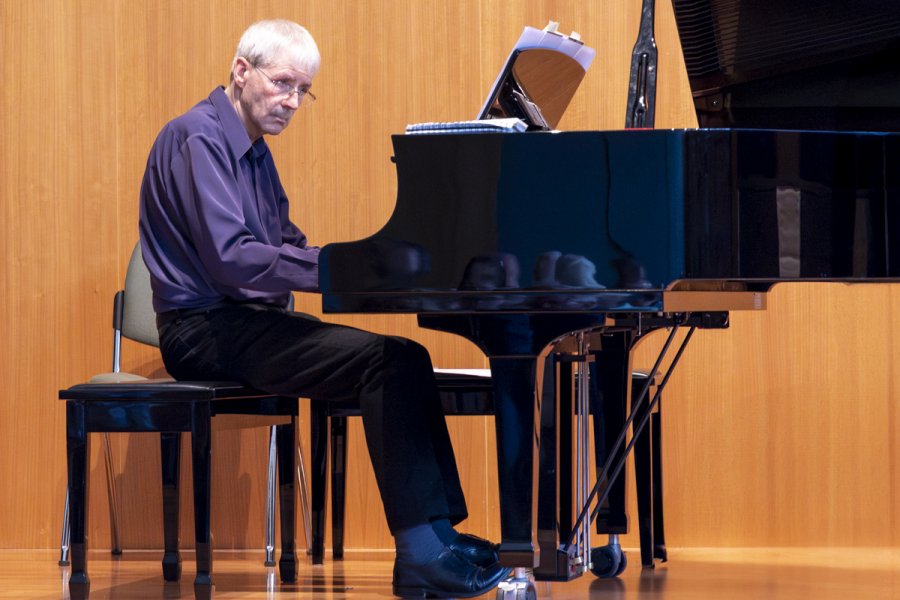
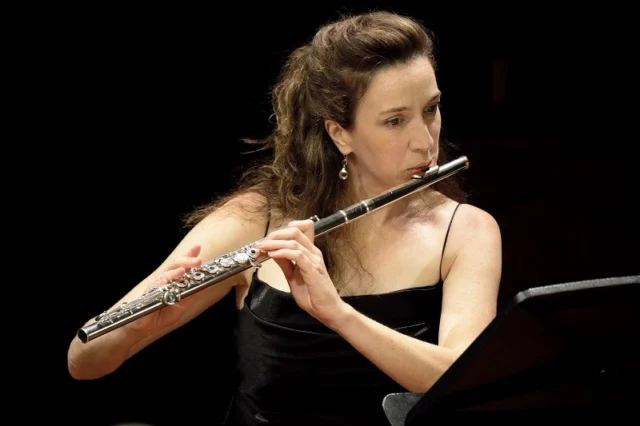
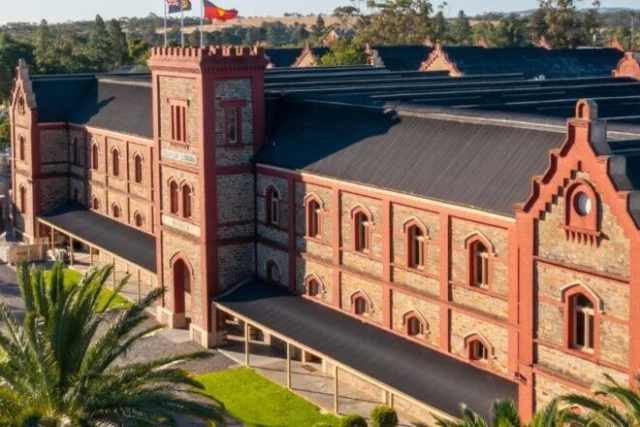
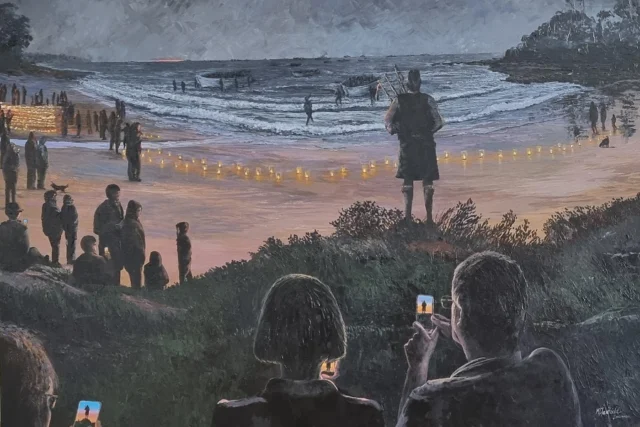
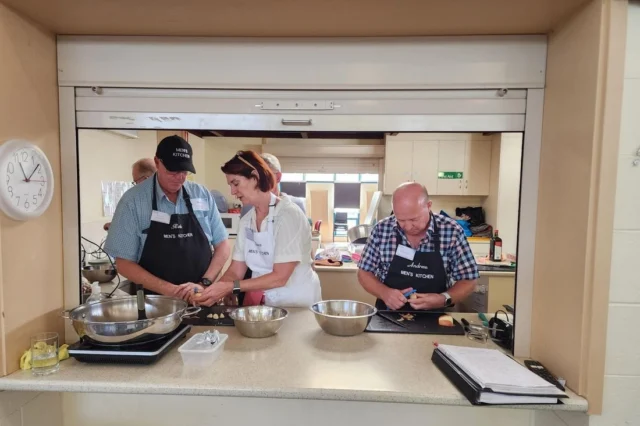
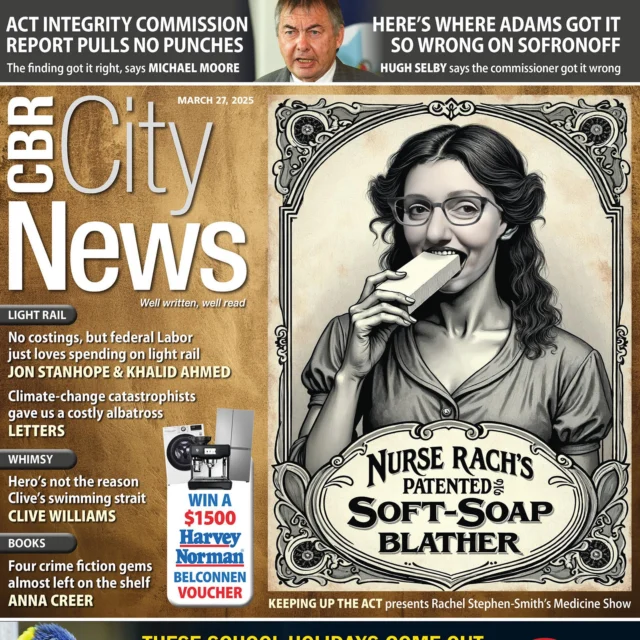
Leave a Reply